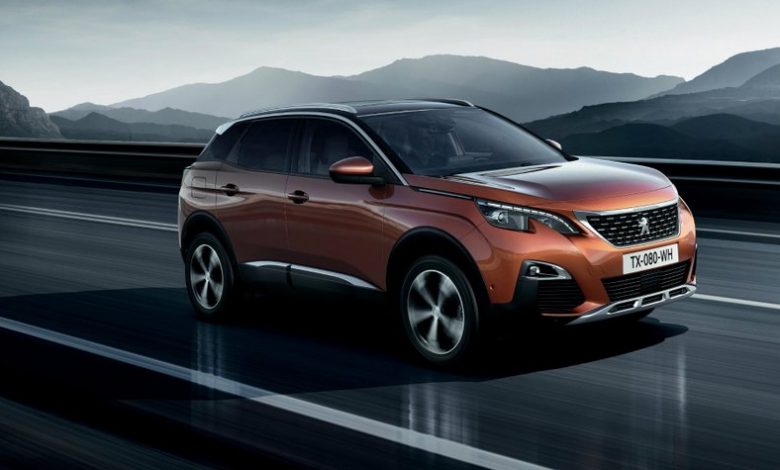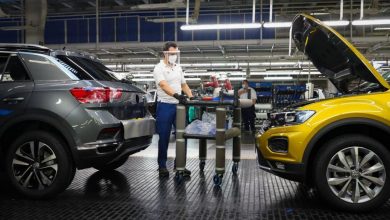
Diesel decline has ended but long-term outlook remains bleak
After years of decline, diesel sales are forecast to be flat in 2020 because of demand for the powertrain in models such as the Peugeot 3008 compact SUV.
Analyst firm LMC Automotive predicts the overall European diesel share will slip to 32 percent this year, down from a high of 56 percent in 2011. The downturn for diesels was at its most dramatic in 2018, when demand fell by more than a million units.
Automakers scrambled to react by increasing production of gasoline-powered vehicles, shutting down diesel-engine production lines, and bringing out new models without a diesel variant.
This has prompted some experts to predict an early demise for the powertrain. “I think it’s dead,” David Bailey, professor of business economics at the UK’s Birmingham Business School, said. He believes diesels are likely to only remain relevant in segments such as large SUVs. “Governments have turned against it,” Bailey said, “and the industry has failed to get across a clear message about its cleanliness.”
However, the figures show that for the last six months diesel sales have actually leveled off. They will continue to stay flat in 2020, LMC predicts. “That doesn’t sound particularly good for diesel, but in the context of a likely 600,000-unit decline in 2019, it is very positive,” Al Bedwell, director for global powertrains at LMC, said. He believes that as long as customers in Europe continue to buy SUVs, diesel has a future. “Logic says diesel will linger in the larger segments where the benefits for drivers are still tangible and automakers can sell diesel cars at a profit,” Bedwell said.

Diesels still account for more than half of total sales in segments from midsize and above, apart from the ultraluxury sector. In the first 10 months of 2019, the premium SUV segment that includes the BMW X3, Audi Q5 and Mercedes GLC had more diesel sales than any other premium segment at 274,454.
Automakers have long fought against clean-air legislation that penalizes the diesel, citing the effectiveness of the latest technology used to clean harmful particulates and oxides of nitrogen (NOx).
Automakers need them to help comply with tougher CO2 targets that arrive this year and, they argue, customers still want them. Far from ditching them, some premium brands are expanding their diesel lineups. Audi, for example, has switched to diesels over gasoline engines in larger high-performance S-badged cars such as the SQ5 premium midsize SUV to help lower CO2.
Electrification shift
“SUVs are still strongly diesel partly because of the lack of electrified variants. As more electric and hybrid versions arrive, the shift away from diesel should be rapid,” JATO global analyst Felipe Munoz said. The shift to electrification in bigger cars is well under way. Toyota doesn’t offer diesels in its new RAV4compact SUV, a move that Honda followed with the CR-V in the same segment. Both brands focus on offering those SUVs as gasoline-electric hybrids instead.
Nissan will also drop diesels from its next Qashqai, which will instead offer the automaker’s fuel-saving e-Power hybrid powertrain when it arrives this autumn.
“What is most relevant to me is not the question, ‘What about the future of diesel?’ but ‘What about the future of conventional engines?’ What we underestimate today is the weight of the [CO2] regulation,” Nissan Europe Chairman Gianluca de Ficchy told Automotive News Europe.

Both premium and volume brands are also rolling out more plug-in hybrid and full-electric models. These include the plug-in hybrid version of the Ford Kuga compact SUV and a full-electric crossover from Nissan, which will be based on the Ariya concept and is due sometime next winter.
Electrification would be less of a pressing concern if diesel remained popular, but automakers are cautious about relying too much on the recent leveling off of diesel sales.
“Diesel has been stable over the last six months at about 30 percent. Is that going to move down 10 percentage points by the end of next year? No one knows,” Citroen CEO Linda Jackson said. LMC predicts that after a flat year in 2020, the diesel share will fall below 30 percent in 2021, dropping to 23 percent in 2025 and falling to 9 percent by 2030.
Ironically, given its role in the diesel downturn, the VW Group remained the largest seller of diesels through the first 10 months of 2019. Like many others, VW has cut diesels from its range — most notably the 1.6-liter TDI.
Font: Automotive News Europe





